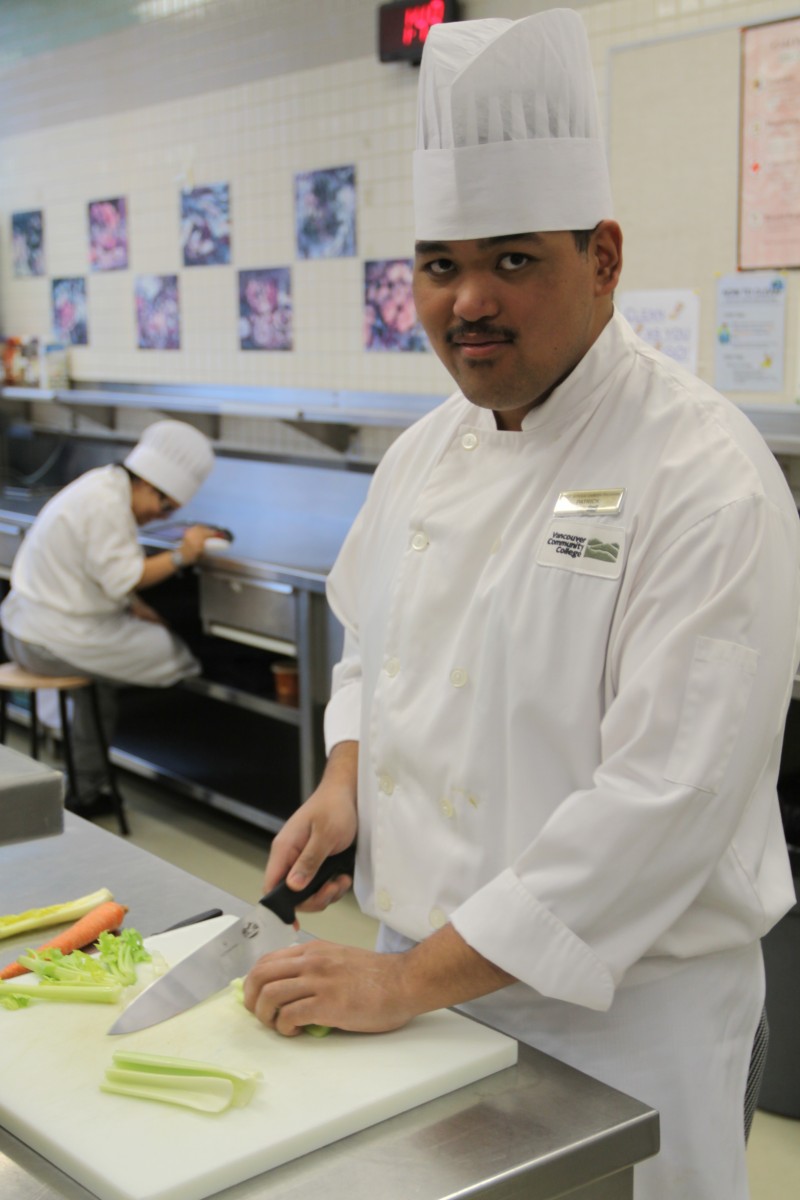On-the-Job Training May be the Recipe for Employment for Students with Disabilities
For Vicky Wang, learning to cook may be the recipe for employment and a bright future.
The Grade 12 student at Killarney Secondary School recently completed a work placement with Sodexo, a food services company which maintains the cafeteria at Vancouver Community College. The Sodexo placement was the latest in a series of work placements for Vicky. She appears to have found her calling in the food services industry.
"It's my favourite. I love making the salads, the pizzas and talking to the customers," she said.
"At the end of the day, I feel so good. My coworkers say I'm doing a good job. On my last day, they hugged me and said, 'We will miss you a lot, Vicki,'" she added.
Next year, Wang, 17, plans to apply to the Food Preparation Program at Vancouver Community College, which is geared to students with intellectual disabilities. The program will give her the credentials to be a kitchen helper in a professional kitchen.
Her decision is the result of exposure to different college programs and job placement opportunities. Through the Vancouver School Board's Lifeskills Program, students with intellectual disabilities are exposed to college-level educational opportunities and job training placements early on in high school.
Patrick Vallejo, 18, a graduate of Vancouver Technical, and Allan Su, 18, a graduate of Windermere Secondary are currently enrolled in Vancouver Community College's Food Preparation Program after work placements in food services in high school.
Like Wang, Vallejo has a developmental disability while Su is autistic - difficulties that can translate into advantages for employers. Vallejo is known as a workhorse whose favouite task is doing the dishes, something he is happy to do for hours on end. Su, meanwhile, is known for his meticulous chopping skills and attention to detail.
For Barb Worwood, Director of Food Services for Sodexo at Vancouver Community College, providing work placements and hiring those with intellectual disabilities, can make her job a whole lot easier. She notes that not only do those employees tend to stay on staff long-term, they are highly satisfied with their positions and bring increased dependability.
"There is phenomenal retention. Once you've got them, you've got them for life"� You say you've got to be here at 5 a.m. it's no problem," she said.
She also stresses that they tend to bring a positive attitude to work, alleviating the stress in busy kitchens.
"It's about being happy. That really levels the tension because otherwise the stress just builds and builds. It brings us back and makes us more human," she said.
That attitude should help students like Vicky Wang whose dream it is to work in a professional kitchen. She hopes that her positive attitude and love of food will translate into a satisfying career. For Wang, it's all about being happy and finding joy in every interaction and every dish prepared.
"I can do everything if I'm happy and say good morning to everyone and just be friendly. When people see you smile, they want to smile too," she said.
To learn more about skills training for students with disabilities, click here.

